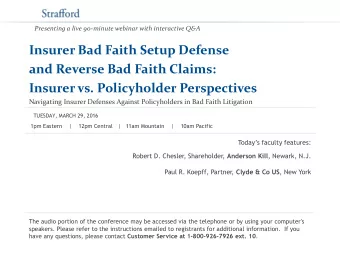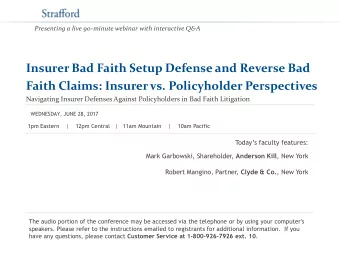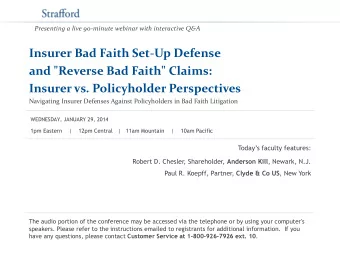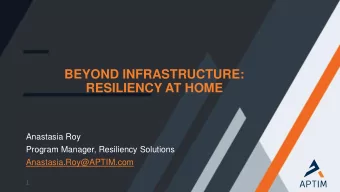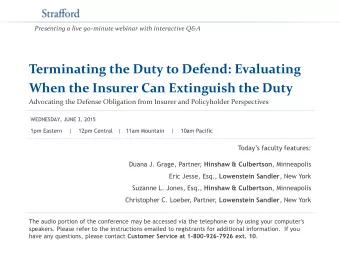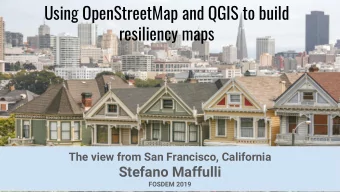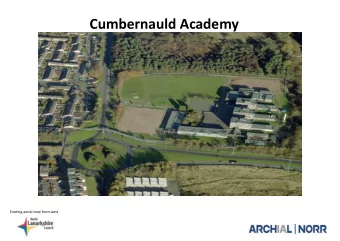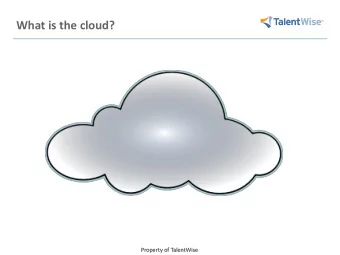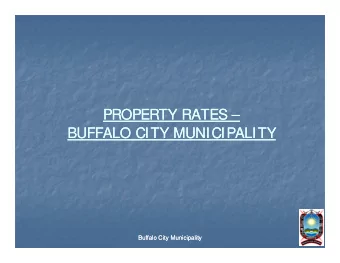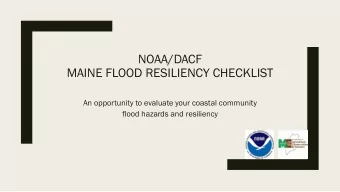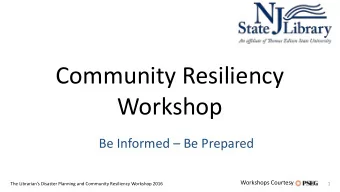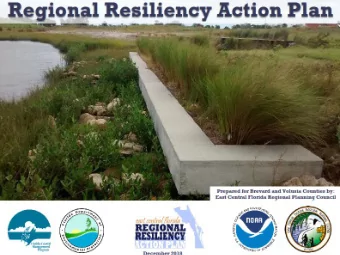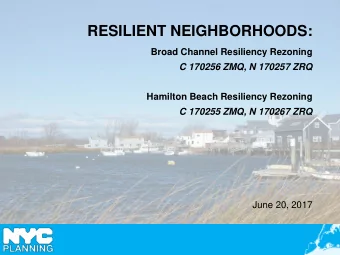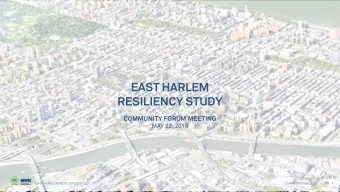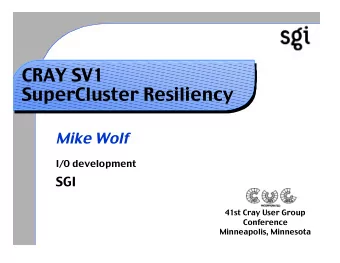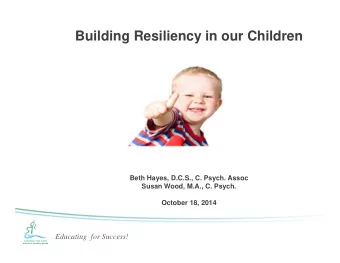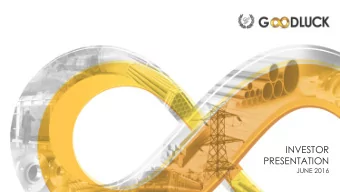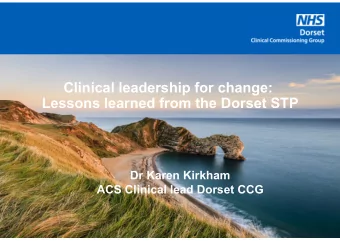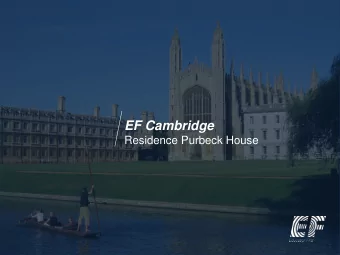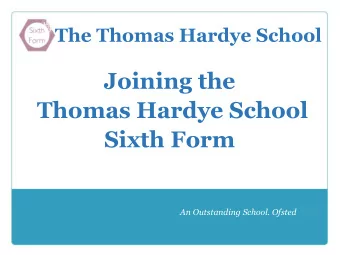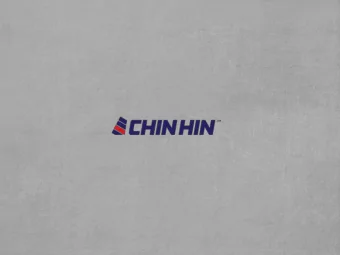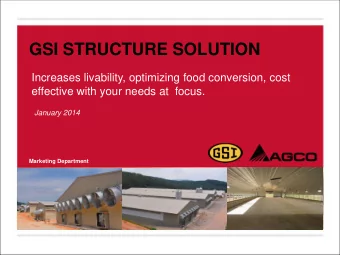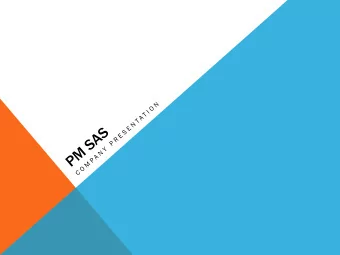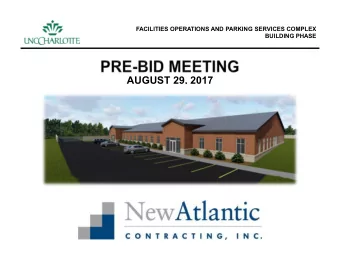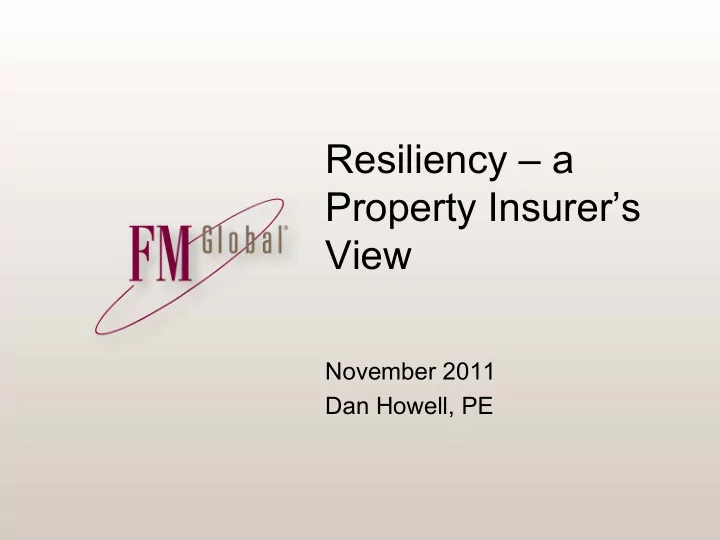
Resiliency a Property Insurers View November 2011 Dan Howell, - PowerPoint PPT Presentation
Resiliency a Property Insurers View November 2011 Dan Howell, PE FM Global (Factory Mutual) Est. 1835 Commercial Property Insurance Business Model: Research Loss prevention engineering Risk
Resiliency – a Property Insurer’s View November 2011 Dan Howell, PE
FM Global (Factory Mutual) – Est. 1835 – Commercial Property Insurance – Business Model: • Research • Loss prevention engineering • Risk improvement – 220,000 insured locations – 1200 field engineers – 350 Loss Prevention Data Sheets Losses ($) Nat Haz / Fire / Other Risk Improvement – Physical – Human Element / Response
FM Global Research Campus
Building Hazards • Natural Hazards – Flood – Wind – Earthquake – Snow – Ice – Rain – Hail – Bush/Wild Fire • Fire (occupancy) • Other (blast, impact, terrorism, etc.)
Flood
Flood (2008 Midwest)
Flood (2008 Midwest)
Flood: Water Treatment Plant
Flood
Flood
Reducing Flood Damage
Wind: Roof Flashing
Wind : RTU
Failure of Dock Door(s) Roof Failure? Door Dock Dock Dock Dock Fails Door Door Door Door
Wind: Building envelope is breached (dock door, windows, louvers,etc.) • “Enclosed” → “Partially Enclosed” Internal pressure: 3x +/- External pressure: no change Net wind pressure increases (low rise, low slope) by: 35% / 25% on walls (f/c) +/- 30% / 20% / 15% on roof (f/p/c) +/- Could lose portion of roof → significant PD & BI •
Dock Door Bracing (int + ext)
Miami-Dade NOA – Dock Door
Miami-Dade NOA – Dock Door Submittal Drawing (SF = 1.5)
Wind damage to port cranes
Broadcast tower: Ice + wind
Broadcast station roof: ice shedding and debris impact
Coordination of Design Disciplines (Arch & Struct) Wind Uplift on deck w/MASP: line load ≠ uniform load
Snow collapse at roof step (high/low bay) Wind High Bay Low Bay
Snow collapse at roof step (new/exist.) Wind New Bldg or Addition Existing Bldg
Snow: purlin failure
Snow: purlin failure (corrosion)
Corrosion: Food processing plant (high int. humidity)
Rain/Drainage: roof + wall
Rain/drainage: soaked cover boards and ponding
Rain/drainage: blocked scupper
Partially blocked drains, slope
Material deterioration
Wave/surge damage to wharf utilities
Wave/surge damage to wharf
EQ damage: Storage rack (photo courtesy of ABS consulting)
EQ damage: Electrical equipment (photo courtesy of ABS consulting)
EQ damage – Non Struct Comp (photo FEMA 74 1994 Northridge)
Example: Hospital losses (2005-2009)
Example: Telecom equipment bldg losses (1980-2000)
520 large multi-national companies (annual revenue >$1 billion): Avg. Loss Severity ($/loss) ≈ 7x
Katrina Losses ≈ 6.7x
Perception of Risk: Exposure, Concern, and Preparation
Perception of Risk: Wind Speeds “50-year” = 2% annual probability of exceedance (PoE) “50-year” = 1 failure every 50 years?? No. We just had a hurricane – I’m good for 50-years?? No. • “50-year” (64% PoE over 50 years) • “100-year” (39% PoE over 50 years) • “500-year” (10% PoE over 50 years)
Summary 1) FM supports evolution of code/std/guidelines for improving performance & resiliency of the built environment 2) Exposure-driven risk-based approach (beyond life safety) 3) Whole building approach – e.g., more attention to building envelope (wind) and non-struct comp (EQ) 4) Better assurance that: As-built = As-designed • Targeted (exposure) inspection/observation and enforcement • Periodic inspection (corrosion/alteration) (Risk & resiliency improvement similar to risk improvement with 1200 FM field engineers inspecting insured locations) 5) Nat Haz Response Team (facilities) – feasible/enforceable? 6) Design: Better arch/struct coordination (how?) 7) Risk awareness: countering wishful thinking (e.g. likihood, PoE)
Questions/comments?
Recommend
More recommend
Explore More Topics
Stay informed with curated content and fresh updates.
